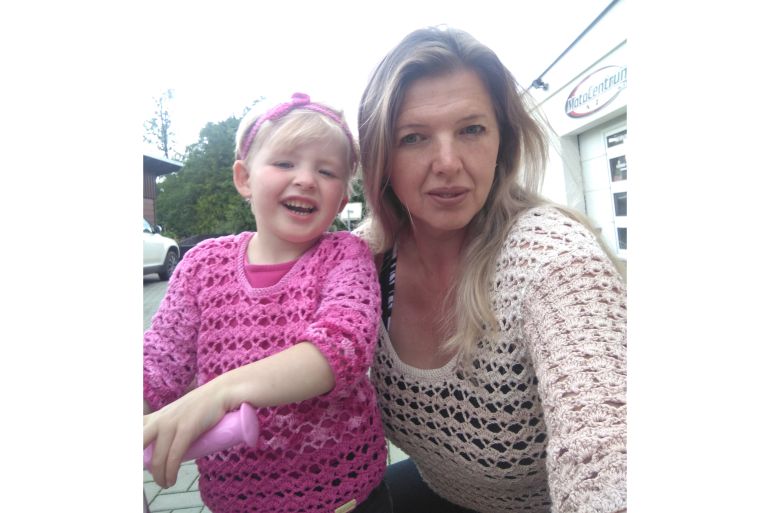Czech women forcibly sterilised a step closer to reparations
Cautious optimism among victims as Czech MPs approve bill that would allow them to seek reparations.

In 1994, 20-year-old Radka Hancilova went to the Klaadno Hospital, in central Czech Republic, for a planned Caesarean section.
Before she gave birth, without her knowledge, doctors offered her tubal ligation – a surgical sterilisation procedure that permanently prevents pregnancy.
Keep reading
list of 3 items‘Not a noisy gun’: The women peacebuilders of Liberia
Pompeo calls report of forced sterilisation of Uighurs ‘shocking’
“They described it as a medical advancement and a form of birth control,” said Hancilova.
Aware of the consequences, she declined. But when she woke up after her Caesarean section, the doctor informed her she had been sterilised anyway.
It was only after the surgery that hospital staff asked her to sign a consent form.
“Their justification was that a future pregnancy would be a life risk to my life or that my baby would die,” said Hancilova, who was physically unwell when signing the documents.
“I was still throwing up and in pain when the doctors told me to sign the papers. I did not know what I was signing.”
Hancilova later underwent several years of hormonal treatments, which were psychologically and physically draining.
She also invested 200,000 Czech crowns ($9,120) for in vitro fertilisation (IVF) procedures.
“I spent a decade of my life dealing with the consequences of something I never agreed to,” said Hancilova.
During communist rule in the former Czechoslovakia, women from low socio-economic backgrounds, and many in the Roma community, were sterilised as part of a state policy. That policy ended in the early 90s, but unofficially continued into the 2000s, activists have said. The last known case was in 2010.
‘Serious human rights abuses’
Hancilova is one of an estimated 7,000 victims of unlawful sterilisations who have for decades fought the Czech state to pay them reparations.
“Reparations would mean a degree of financial and psychological relief, but it will never give back what the doctors did to me,” said Hancilova.
On March 10, with 77 votes for, 0 against and 21 undecided, Czech MPs finally approved a bill that, if passed through the Senate, would allow Hancilova and other victims who were unlawfully sterilised between 1966 and 2012 to apply for compensation of 300,000 Czech crowns ($13,657).
If the measure is approved, the Czech Republic will join other European member states such as Sweden, Germany and Austria in drawing a line behind this historical injustice.
It is not yet clear when the Senate vote will take place.

Czech MP Pavla Golasowska gave a speech in support of the bill minutes before the vote.
“Compensating the victims of these unlawful sterilisations would resolve these very serious human rights abuses and at the same time would be a clear signal to society that similar eugenic monstrosities in our society will never be repeated,” she said.
“Hundreds of people who were sterilised without their informed consent since 1966 remain without any reparations in the Czech Republic.”
According to Barbora Cernusakova, Amnesty International’s human rights expert on Eastern Europe, reparations limit the possibility of repeating such tragedies.
“Given the gravity of the violation, this is the minimum that the society must do, and it has been long overdue,” she told Al Jazeera.
‘We fought long and hard’
Sterilisations were part of an official government-sponsored programme that encouraged social workers to offer financial incentives to Romani women upon agreeing to sterilisation.
When financial incentives did not work, women were threatened that their children would be taken away.
Elena Gorolova, a 51-year old social worker and activist from Ostrava, was sterilised when she was 21 and about to give birth to her second son.
“I was in a stressful situation,” she said. “They were preparing the Caesarean section and I was in pain. I was in such a state that I didn’t know what I was signing.”

Gorolova has become a public figure as one of the first women to speak openly about her experience.
“I am not doing this just for me, but all the other women who have not been given a voice. Our stories are almost the same. Knowing I am not just fighting for myself gives me strength to go on,” she said.
She has led public campaigns and organised protests to raise awareness.
“It will not undo what had happened to us, but it sends an important message that unlawful sterilisation is done and over with,” said Gorolova.
“We fought long and hard for this, but I did not believe for a second that the parliament would give this bill a chance.
“I streamed the parliamentary session in suspense. When it came to the vote, I was so nervous. What happened was a big success. We have never been so close.”